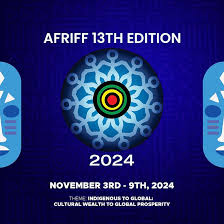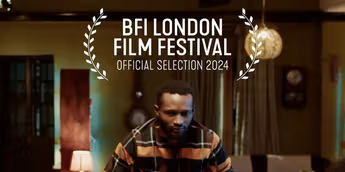The African Film Festival (AFRIFF) kicked off in style on November 3 at the Royal Box at Cube 65 in Victoria Island, Lagos, celebrating African cinema’s resilience and creative growth.
This year’s theme highlights the determination and tenacity of the African film industry, marking a remarkable journey for African storytellers.
The night’s ambiance was enhanced by the presence of Nigeria’s comedian Bovi as host, along with high-profile attendees such as Minister of Art, Culture, Tourism, and Creative Economy Hannatu Musa Musawa, Lagos Governor Babajide Sanwo-Olu, U.S. Ambassador Richard M. Mills Jr., and media mogul Nduka Obaigbena.
Setting the tone for the festival, the opening film Headless, directed by Nigerian filmmaker Michael W. Ndiomu, tells the story of an ambitious filmmaker who faces numerous challenges upon moving to Lagos.
This powerful narrative reflects the realities many African creatives experience, resonating deeply with the festival’s theme of resilience.
A significant highlight this year was the introduction of the Herbert Wigwe Trailblazer Award, created to honor the late Herbert Wigwe, a stalwart supporter of Nigeria’s creative industries.
The award celebrates individuals making impactful contributions to African creativity, with the inaugural recipients being Afreximbank President Benedict Oramah and Lagos Governor Babajide Sanwo-Olu, recognized for their roles in fostering Nigeria’s creative sector’s growth.
Governor Sanwo-Olu praised the film industry’s positive impact on Lagos, noting its contributions to employment, creativity, and public joy.
He emphasized that the city’s creative ecosystem, spanning film, fashion, music, and tourism, is a vital engine for change, advancing culture and creating job opportunities.
Media giant Nduka Obaigbena commended AFRIFF founder Chioma Ude for her enduring vision, describing AFRIFF as one of the largest film festivals in Africa and a significant cultural event worldwide.
He also paid tribute to Herbert Wigwe, noting his unwavering support for AFRIFF and the arts, and encouraging others to invest in the creative sector, which he sees as integral to Nigeria’s identity beyond oil.
In a heartfelt address, Obaigbena celebrated Wigwe’s commitment to AFRIFF and creative pursuits. He encouraged attendees to support Nigeria’s creative industries, which he sees as advancing culture, uniting people, and showcasing Nigeria’s rich cultural tapestry to the world.
“AFRIFF is said to be one of the biggest film festivals in Africa. I wonder why we limit ourselves, but we are one of the best in the world.”
“I was invited to pay a tribute to one of us, who is sadly not here today. Today, we are paying a tribute to our friend and brother Herbert Wigwe, who is a sponsor of the art and supports everything creative and this evening AFRIFF is one of his products of support. We all have to support our creative industries because beyond oil, it engages all of us, it advances our culture and makes us who we are. All I say to you all is that whatever you do, be good.” He said
Minister Hannatu Musa Musawa also highlighted Nigeria’s impact on global cinema, noting the country’s position as the world’s second-largest film industry.
She expressed pride in AFRIFF as a platform that promotes Nigerian films, strengthening the industry and inspiring new generations of African storytellers.
“We have the second largest film industry in the world and a lot of people are interested in Nigeria when it comes to film and it is commendable to have a person such as this that celebrates Nigerian film is very important because it encourages the industry itself and it also shows us as a people what can be done to improve the creative industry.”
The opening night set a high bar for the week-long festival, celebrating African storytelling and creative growth. With a lineup of screenings, workshops, and panels, AFRIFF is poised to deepen its impact, spotlighting the talent and resilience driving African cinema today, with festivities scheduled to run through November 9.
See photos:















